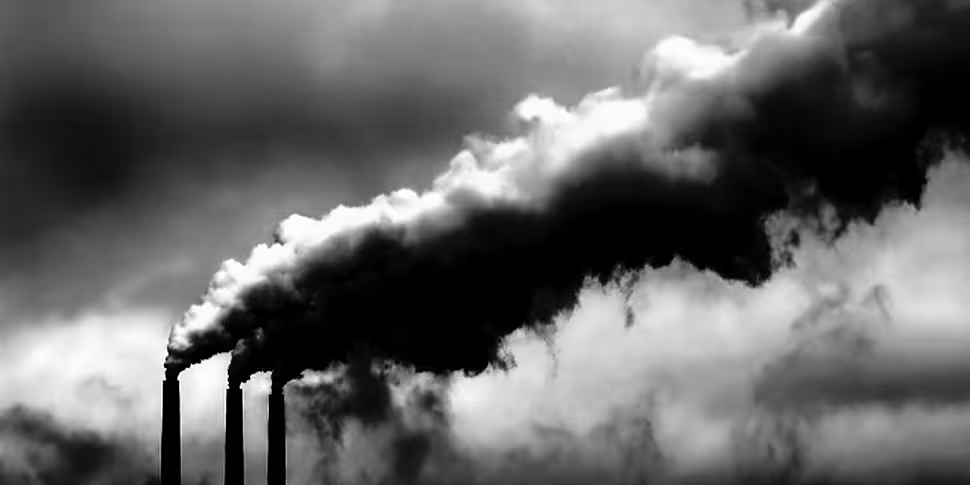This week, we received an email from a listener regarding the issue of global warming. It was one of a number of comments along the same lines and we get a few of these every time anyone on the programme even utters the words “climate change”. So this one time, we thought we’d respond. Firstly you read Larry's original email followed by my response.
Jonathan,
Please remember that not all AGW "deniers" are crazed.
For one who certainly isn't: Physicist Freeman Dyson. (http://en.wikipedia.org/wiki/Freeman_Dyson)
And this website below lists 31,487 American scientists, including 9,029 with PhDs – physical scientists, not social scientists -- who question the models:
http://www.petitionproject.org/
Second, The Nobel Peace Prize is awarded by a committee of five persons who are chosen by the Norwegian Storting (Parliament of Norway), Oslo, Norway and has nothing whatsoever to do with Science. Al Gore and the IPCC were awarded this prize in 2007 for political reasons, not for any science:
"…For their efforts to build up and disseminate greater knowledge about man-made climate change, and to lay the foundations for the measures that are needed to counteract such change."
The 2012 winner of the prize was the EU.
The Committee's composition reflects the relative strengths of the political parties in the Storting, and is assisted by specially appointed expert advisers. (http://nobelpeaceprize.org/en_GB/nomination_committee/members/ ) Such as the Lutheran Bishop of Oslo.
The Nobel Prizes in Science, Literature, etc., are awarded by the Royal Swedish Academy of Sciences with a complicated system of nominations due to scientific achievements. ( http://www.nobelprize.org/nomination/physics/ )
Neither you nor your guest Ian Brunswick should disparage anyone who questions computer models about alleged climate changes.
Larry
Dear Larry,
Many thanks for your email, we always encourage listeners to get involved in the discussion and are delighted that you listen to the programme. In the editorial decisions surrounding the coverage of climate change, we follow the lead of Steve Jones, a man who is so respected in science and science communication that the BBC hired him to revise their entire scientific output. With reference to putting climate change deniers on air (or in our specific case lending credibility to their views):
“This goes to the heart of science reporting – you wouldn't have a homeopath speaking alongside a brain surgeon for balance, as that would be absurd. It's just as absurd to have a climate sceptic for balance against the work of the overwhelming majority of climate scientists."
With respect, we defer to the knowledge of 97-98% of scientists who work in this field and have a position on the issue. They concur that mankind is contributing to global warming. If you or a group you represent can publish thousands of studies in peer-reviewed journals to the contrary, we'd be happy to air an alternative view. In the absence of such studies, we feel it would be misrepresentative to give airtime to an opinion that is not currently held by the vast majority of experts in the area.
Physicist Freeman Dyson, whom you mention in your letter, is a great scientist and we have covered his work previously on the show (you should listen to the podcast on Dyson Spheres, great stuff). Dyson actually believes that Global Warming is manmade (this is a quote from the link you actually sent me)
"[o]ne of the main causes of warming is the increase of carbon dioxide in the atmosphere resulting from our burning of fossil fuels such as oil and coal and natural gas."[37]
He goes on to say that in his criticism of global warming:
"[m]y objections … are not so much over the technical facts, about which I do not know much, but it’s rather against the way those people behave and the kind of intolerance to criticism that a lot of them have."[40]
Is this really a strong argument against the science? Or is it more directed at how science becomes policy, of which there are many valid opinions.
In reference to the Petition Project, can you please supply the selection criteria for these scientists? 31,000 scientists sound like a lot, but unless we know the methods of collation, we can never really know how many out of a total. Here’s a nice summary that gives this number context by www.skepticalscience.com.
According to figures from the US Department of Education Digest of Education Statistics: 2008, 10.6 million science graduates have gained qualifications consistent with the OISM polling criteria since the 1970-71 school year. 32,000 out of 10 million is not a very compelling figure, but a tiny minority - approximately 0.3 per cent.
In my experience, many scientists working in agricultural science are not always au fait with the latest studies in material science and vice versa. To us, it makes sense to listen to the people who are actively working and researching this very serious issue, again, of which 97-98% agree.
If you’d like to listen back to the show or share with your friends, we’d very much appreciate it.
Thanks again for getting in touch.
Kind regards,
Jonathan McCrea
Futureproof









